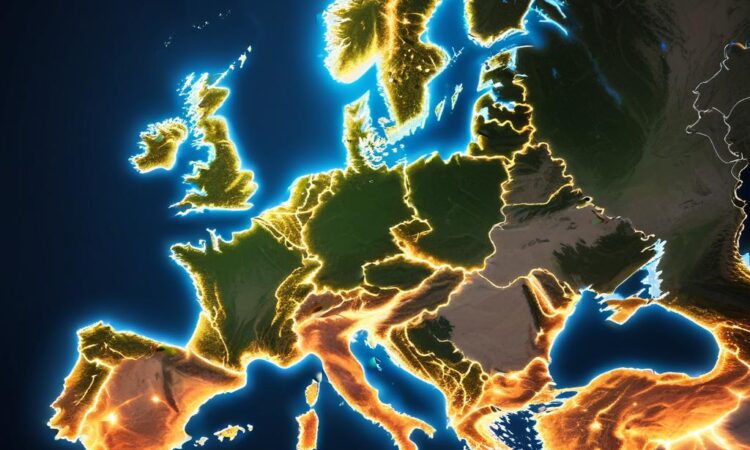Energy Crisis in Europe: A Deep Dive into the Ongoing Challenges
The ongoing energy crisis in Europe, exacerbated by the war in Ukraine, is leading to high energy prices and concerns about energy security. This crisis has far-reaching implications, impacting households, businesses, and governments alike. This article delves into the complexities of the situation, exploring its causes, consequences, and potential solutions.
The Roots of the Crisis: A Perfect Storm
The energy crisis in Europe is a multifaceted problem with a complex history. Key contributing factors include:
1. Dependence on Russian Gas:
For decades, Europe has heavily relied on Russia for its natural gas supply. This dependence has been a source of vulnerability, especially in light of geopolitical tensions. The war in Ukraine has significantly disrupted Russian gas flows to Europe, leading to supply shortages and price spikes.
2. Increased Global Demand:
Rising global demand for energy, particularly from emerging economies, has put upward pressure on energy prices. The recovery from the COVID-19 pandemic further fueled this demand, contributing to the current tight energy market.
3. Climate Change Policies:
While transitioning to cleaner energy sources is essential, the rapid shift away from fossil fuels has created challenges in meeting short-term energy needs. In some cases, this transition has inadvertently contributed to the energy crisis.
4. Infrastructure Bottlenecks:
Europe’s energy infrastructure is not always equipped to handle the changing energy landscape. Bottlenecks in pipelines, storage facilities, and grid capacity have hindered the flow of energy and exacerbated price volatility.
The Impact of the Crisis: A Multifaceted Challenge
The energy crisis is having a profound impact on various sectors across Europe:
1. Soaring Energy Prices:
Energy prices have skyrocketed, putting a significant strain on household budgets and businesses. This has led to inflation, reduced consumer spending, and concerns about affordability.
2. Industrial Impacts:
High energy prices have forced many energy-intensive industries to cut back on production or even shut down operations. This has implications for employment and economic growth.
3. Energy Security Concerns:
The crisis has exposed Europe’s vulnerability to energy supply disruptions. It has highlighted the need for greater diversification of energy sources and improved energy security strategies.
4. Social and Political Implications:
The energy crisis is causing social unrest and political instability in some countries. Public dissatisfaction with government policies and the economic consequences of the crisis can fuel social tensions.
Addressing the Crisis: A Complex and Multifaceted Approach
Tackling the energy crisis in Europe requires a comprehensive and multifaceted approach. Key steps include:
1. Diversification of Energy Sources:
Reducing dependence on Russian gas is crucial. Europe needs to accelerate the development of alternative energy sources, including renewable energy, nuclear power, and liquefied natural gas (LNG) from other suppliers.
2. Energy Efficiency Measures:
Improving energy efficiency can significantly reduce energy consumption and lower costs. This includes implementing building retrofits, promoting energy-efficient appliances, and optimizing industrial processes.
3. Strategic Energy Storage:
Expanding energy storage capacity is essential to ensure a reliable and resilient energy supply. This includes investing in batteries, pumped hydro storage, and other energy storage technologies.
4. Regional Cooperation:
Enhanced collaboration between European countries is critical to address the energy crisis. Sharing resources, coordinating policies, and investing in cross-border energy infrastructure can strengthen Europe’s energy security.
5. Long-Term Investment:
The energy crisis presents an opportunity for long-term investments in clean energy technologies. By accelerating the transition to renewable energy sources, Europe can reduce its reliance on fossil fuels and achieve its climate goals.
Looking Ahead: Challenges and Opportunities
The energy crisis in Europe is an unprecedented challenge with no easy solutions. However, it also presents opportunities for innovation, diversification, and greater energy security. Addressing this crisis will require a concerted effort from governments, businesses, and individuals alike. By embracing a combination of short-term measures and long-term strategies, Europe can navigate this difficult period and emerge with a more resilient and sustainable energy system.

